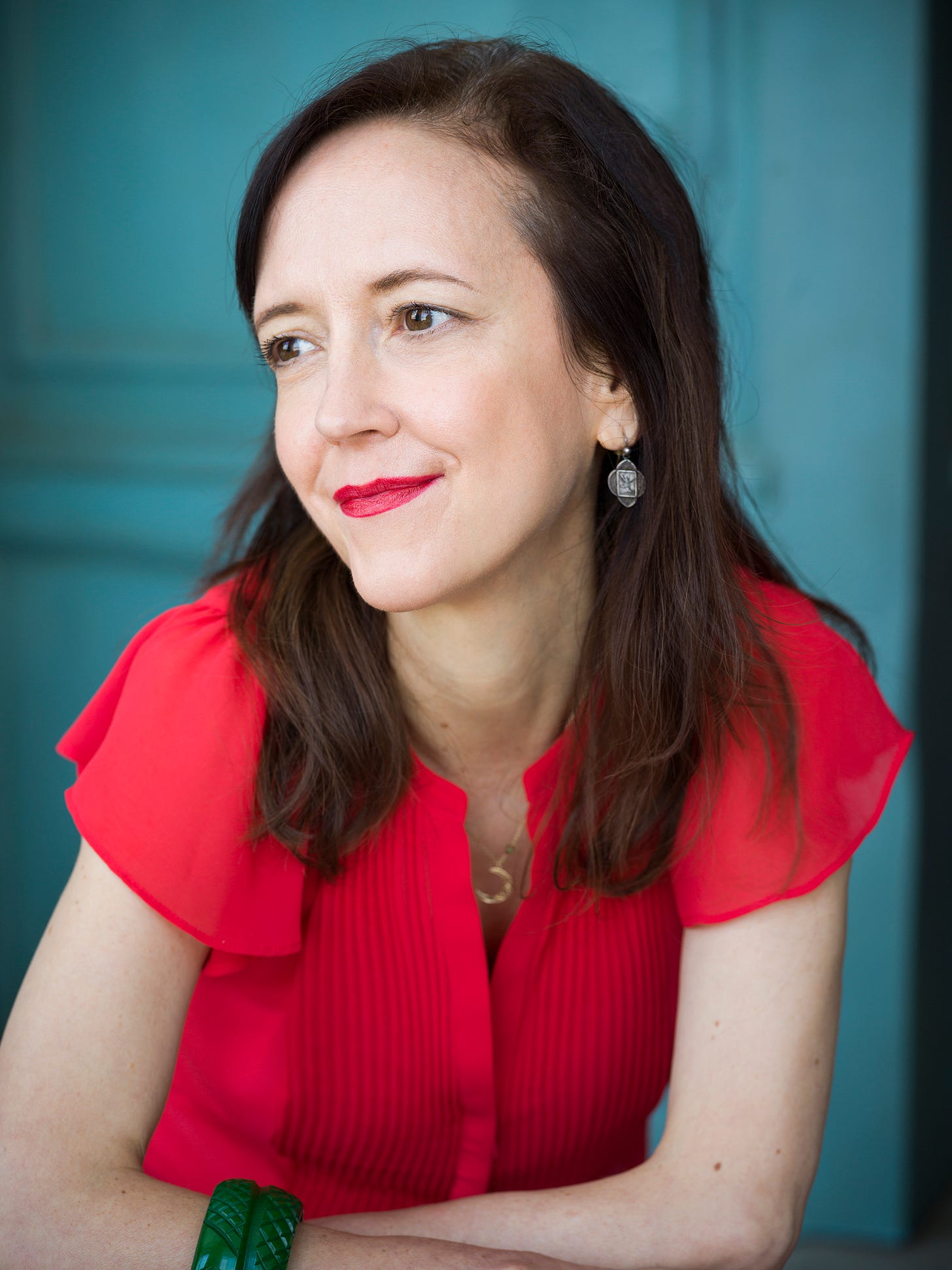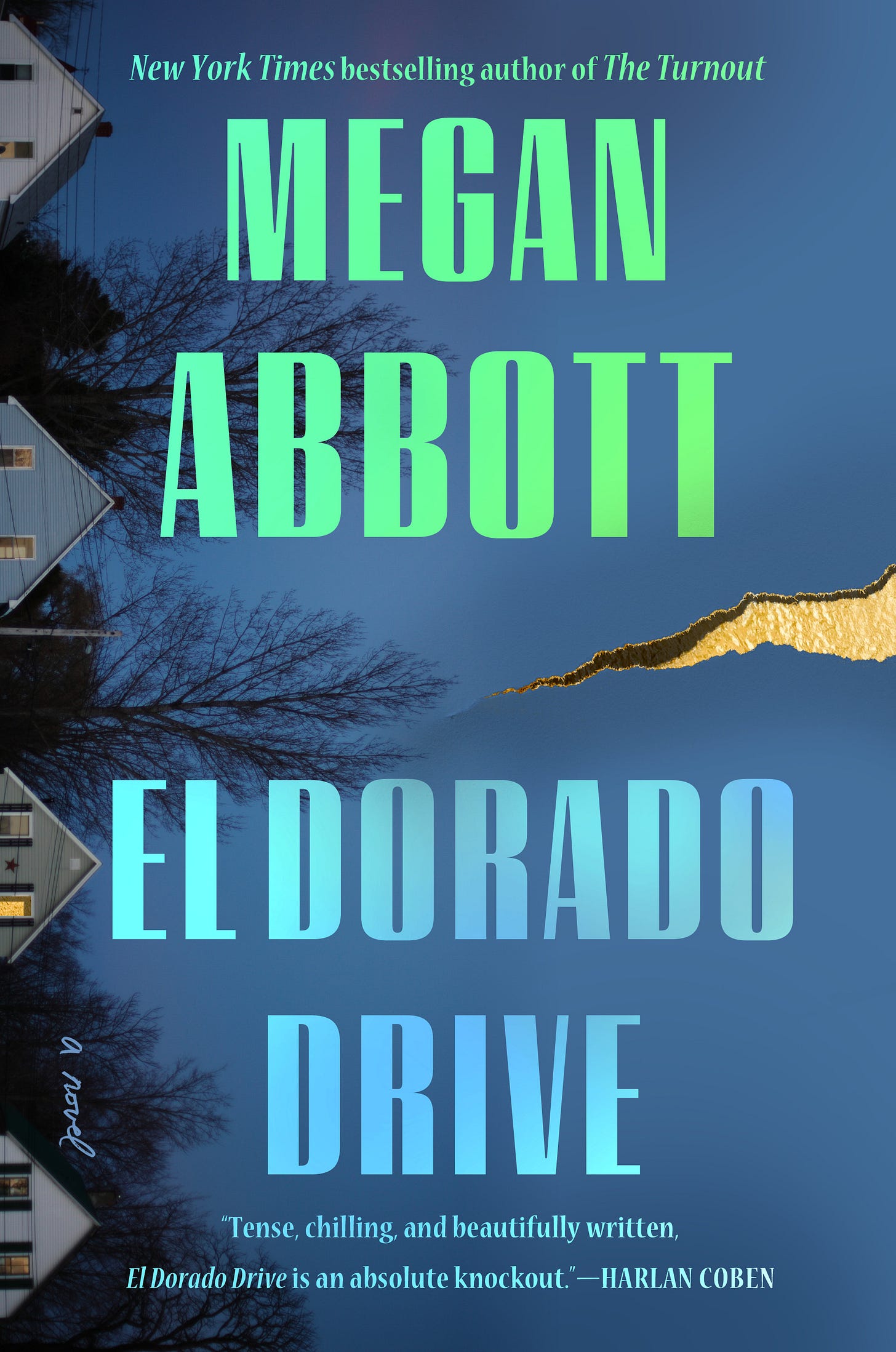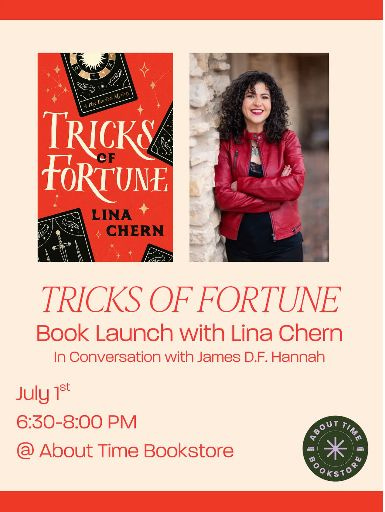#38: Five for Them, One for Me, with Megan Abbott
Megan’s newest, EL DORADO DRIVE, is out tomorrow.
I got to wait out a tornado with Megan Abbott once.
It was back in 2023, in Oxford, Mississippi, during the Oxford Conference for the Book (chronicled in one of my first newsletters.) That night’s Noir at the Bar was cancelled because of a tornado warning, which left authors with nothing to do, so everyone gathered in the hotel bar and drank. Megan Abbott was in attendance that year, alongside Ace Atkins, Eli Cranor, and S.A. Cosby. It was an absolutely fantastic night that doubled as an education, getting to talk with so many wonderful writers, including Megan, who I kept calling “Ms. Abbott.”
She said, “Just call me ‘Megan.’”
And that’s a very difficult thing to do when you’re talking with one of the four or five finest writers in crime fiction. Since debuting with a quartet of period noirs (including the Edgar-winning QUEENPIN), she’s written a series of contemporary novels that balance catch-your-breath suspense with deeply personal characters and beautiful writing.
Her latest, EL DORADO DRIVE—about three sisters who become involved in an “investment club”—will be in conversation for one of the best books of the year. It’s another exception novel from a writer who simply does not miss.
Megan’s also our latest Five for Them, One for Me.
Let’s go.
(And please check out Megan’s last two lines in this interview, which are perhaps my favorite in the entire series. It is a place where Ms. Abbott and I agree 100 percent.)
FIVE FOR THEM
1. What was the origin point for your EL DORADO DRIVE?
During the pandemic, I was watching—on social media, in the press—the resurgence of all these questionable money-making “opportunities,” especially ones that target women. MLMs, pyramid schemes, various sketchy “female empowerment” operations that specifically invoke the language of feminism. I started thinking about women and their relationship to money. To invoke a Mamet-esque turn of phrase, money is never just about money. And for women—particularly of past generations, when perhaps their husbands were the primary breadwinners and controlled the finances—money can also be about security, independence, power, revenge … ripe stuff for a crime novel. I wanted to get under all those feelings, and the impulse to take a chance on what might sound to most of us like a too-good-to-be-true enterprise.
2. Your first four books were period-set noirs, and EL DORADO DRIVE is also, but instead unfolding during 2008/2009. However, it feels coded with current attitudes, including “girlboss” mentality and the rise of MLMs. It’s also you writing about where you grew up—the Detroit suburb of Grosse Pointe—for the first time. Why set the book in this particular time and location?
Two interconnected reasons: the crippling recession and the auto industry bailout. For those of us who remember, 2008 was the (last) time the bottom dropped out. I wanted the book to reside in a time of economic panic and that period in particular was even more piercing in Detroit because GM and Chrysler were teetering on bankruptcy before the federal government swept in. It’s hard to overemphasize how fundamental the Big Three automakers were to the city and its economic basis. Their decline and collapse were earth-shaking. Growing up in the Detroit area in the 1980s, you felt the impact of every plant closing, every prolonged strike. All the women in the book have been affected by it because it touched everybody, whether you worked in that world or not.
And, of course, MLMs have been around forever (think Mary Kay, Tupperware), but their popularity always rises in times of economic peril or transition. We like to think of all these things are new, unprecedented, but it’s all cycles and we see all the echoes and reverberations now if I’ve done it right! America is not an easy place and never has been.
3. There’s a fantastic passage in the book: “Your sisters will always break your heart, pierce straight to the center of it and split it in two. And your sisters will always make it whole again. It’s what we do. What sisters do.” The dynamic between the three sisters is so complex, and compounded with financial concerns and a tacit class struggle. What brings you back to writing these complicated families, and is there any inspiration from your own family?
Gosh, I guess it will forever be ground zero, right? Maybe it’s the Freudian in me, but I think it always comes back to family because all our relationships to follow are attempts to replicate or repair or heal those initial ones with our parents, our siblings. We never stop trying to fix it, or get back to some imagined innocence, or to remedy some terrible harm. Or all of the above at once. And the bond we always have with our siblings in particular is that we’re both/all veterans of the same war. The Bishop sisters, who had a calamitous childhood, keep wrestling with it together, romanticizing it, laughing about it, trying to defuse it of its power. It never ends.
4. I really admired the dialogue in EL DORADO DRIVE, how it’s illuminated with the echoes of characters’ pasts as they quote parents, exes, et cetera. Talk about your approach to dialogue and how it sets both tone and character in the book.
It’s probably the thing I fuss the most over—to a fault! But it’s really all about how it sounds to me. Once I capture a voice, I commit to it. I hear the characters in my head. The cadence of their speech, the kind of language they use, the pauses, the ellipses, the questions that aren’t really questions. In this book in particular (and thank you for noticing!), I was trying very hard to keep the story in the present, to avoid flashbacks and backstory, and so the dialogue had to do a lot of the heavy lifting. And I think with our family, there’s always a lot of code, shorthand, etc. with the way we talk to one another. That shared history again, and the set of unspoken rules about what we do and do not talk about. (And in most Midwestern WASP families, one talks about almost nothing!)
5. In a recent interview you discussed your admiration of Southern fiction, and in particular Charles Portis (TRUE GRIT, NORWOOD), and you were previously a writer-in-residence at Ole Miss in 2013-2014. All of this made me wonder about the influence of Southern fiction on your own work.
Goodness, probably a bigger influence than I know. Foremost, I think it’s in voice, its “bigness” and specificity. The first time I read Faulkner’s The Sound and the Fury in college was a revelatory experience for me. The book is all voice and it’s fearless and radical in Faulkner’s commitment to it. The narrative doesn’t abide by any rules—all you have to anchor you is the voice. You follow it and trust in it, a true intimacy. Same with Carson McCullers, Flannery O’Connor, Barry Hannah and certainly Portis.
These authors are all contagious too. Once I start reading them, I have to be careful not to mirror them, or try to. They’re so specific, so idiosyncratic that they tattoo themselves on your brain. And that’s a gift.
ONE FOR ME
Harper—the main character of EL DORADO DRIVE—teaches horseback riding, and the book is rife with “horse girls.” What kind of “girl” were you growing up?
I longed to be a horse girl! Or a ballet girl. Alas, I was neither. I was the weird kid plucking Hollywood Babylon and Helter Skelter from the paperback spin rack at Bob’s Drugs. It took me a long time to find my people. Crime fiction gave me the greatest sense of community I’ve ever had. At last, fellow weirdos like me.
BOOK LAUNCH FOR “TRICKS OF FORTUNE”
I’ll be in Chicago on Tuesday, July 1, talking to Lina Chern about her wonderful new book, TRICKS OF FORTUNE. It’s the follow-up to her Mary Higgins Clark Award-winning debut PLAY THE FOOL. They’ll be drinks and snacks, but really it’ll be the utterly delightful Lina talking about the book and whatever crosses our collective minds. It’ll be a good time in spite of me.
This is a ticketed event, so grab your ticket now and looking forward to seeing you there.
That’s all we’ve got for now. Thanks for coming. See you next time, and hey, let’s be careful out there.





“At last, fellow weirdos like me.”
Yes. Absolutely this.
Great interview, thank you! About women and finances, I was reminded of my mother's distress after my father's death. Sixty years of marriage and she never had to deal with the bank or write a check. I had to teach her how to use the ATM, she was terrified. Yes, it is generational, and fertile ground for crooks.